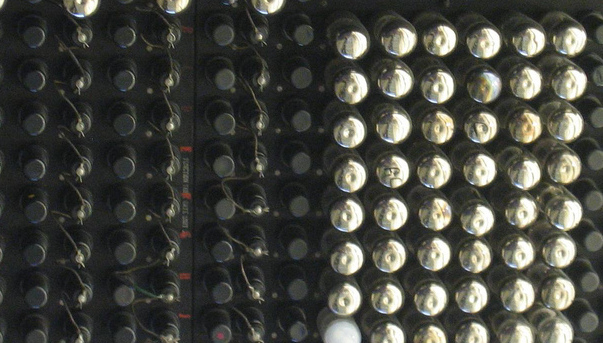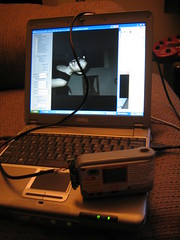Allow me once again to sing the praises of freecycle, the group that exemplifies “one man’s trash is another man’s trash.” While I’ve unloaded a few junky things this route, last week was my first pick-up. A poster offered an “old” Dell case with Pentium III (733 mHz) motherboard and CPU, and I didn’t hesitate to grab it.
Now, let’s put “old” into context: the machine was evidently made around Y2K. I had my firewall running off of a machine that was also given to me, “old,” in 1999. It was a Pentium 100 that used to belong to a Gateway, had 64 megs of RAM and sat in an AT case. Remember ISA? Big keyboard connectors? Serial ports? This machine has served me faithfully, running a 2.0 Linux kernel for years, delivering mail and proxying all of my network traffic, even back to the days when the upstream connection was a modem. As of yesterday it was on a 160 day uptime — certainly I’ve had longer, but still not bad. I think the last downtime was when I painted my room and had to move it.
Enter my new “old” box. It came without RAM, but luckily I already had 512 megs of SDRAM sitting around. The CPU, video card, and network card included all looked fine, so I grabbed one of the net cards from box #1 and threw it in, swapped in my hard drive, and had it up and running. The fan was very noisy, so I took a trip down to Best Buy.
When are we going to get a Fry’s in NoVA already? To think that my best local so-called computer store is Best Buy… this is a sad state of affairs. Well, they did have case fans, but only the kind with blue blinking LEDs. Resigned, I plopped down my $10 and headed home to install the thing. The good news is that the machine is now quiet enough to act as the new firewall for my home. The bad news: blue blinking LEDs. How am I supposed to sleep with these things flashing all night? There’s no off switch and you can’t cover up the fan. One of these days I might take a soldering iron to the blinking light portion of this thing.
Anyway, a new, much faster, hash is born. Let us hope he is as reliable as his predecessor. And I look forward to getting a free Athlon 64 in 2011.




